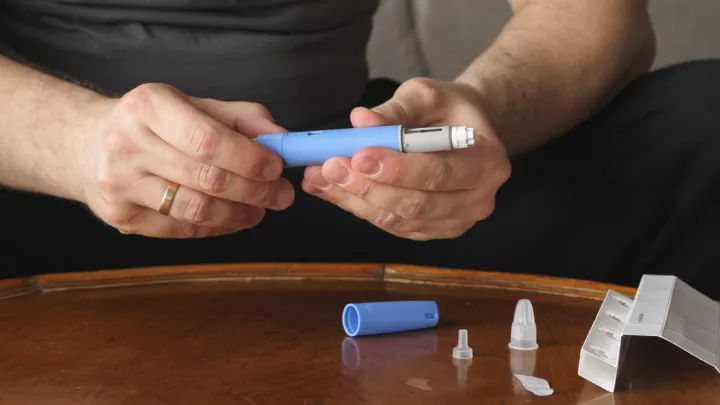Help for painful popping and clicking in the jaw

If you experience pain and discomfort in your face, jaw joint area and in or around the ear when you chew, speak, or open your mouth wide, you may have temporomandibular joint disorder (TMJ).
Symptoms can vary from toothaches, headaches, neck aches, earaches, to hearing problems and upper shoulder pain. The condition can be temporary, can come and go or it can last for years and cause persistent and debilitating pain. “The good news is, the majority of people with TMJ disorders have a muscle problem that is the source of their pain and can be successfully treated non-surgically with conservative measures,” says Jason Untrauer, MD, maxillofacial surgeon at Nebraska Medicine. “Conservative treatment is successful in about 80 percent of cases and typically consists of diet modification that entails eating more soft foods, muscle relaxants, non-steroidal anti-inflammatory medications, ice packs, physical therapy and bite-splint therapy.”
There’s no need to suffer. The maxillofacial specialists at Nebraska Medicine can help you identify the cause and start you on a treatment plan to eliminate the pain. To schedule an appointment, call us at 800.922.0000.
If symptoms persist or worsen, surgery may be recommended. About 10 to 15 percent of patients will need surgical treatment. “Surgical success rates are quite good, with most studies showing an 85 to 90 percent success rates,” says Dr. Untrauer.
"If you have painful popping and clicking and dysfunction such as your jaw locking closed, inability to fully open their mouth, or the inability to chew, it is best to seek evaluation early on,” says Dr. Untrauer. “Continued dysfunction will likely lead to degeneration of the joint. In this scenario, repositioning a displaced disc will not only improve your symptoms, but will likely halt the progression of TMJ degeneration.”
TMJ disorders most often affect women of child-bearing age and can occur when the joint is injured or put under pressure or stresses such as injury in the area, misalignment of the teeth or jaw, grinding, arthritis or even chewing gum.
In addition to causing muscle pain, TMJ disorders can also cause internal derangement of the joint such as a displaced disc, dislocated jaw or injury to the condyle, the rounded ends of the lower jaw.
Because symptoms and causes can vary widely, TMJ disorders can often be difficult to diagnose, making it very important to be evaluated by a qualified oral and maxillofacial surgeon experienced in dealing with these disorders to ensure proper treatment. “Misdiagnosis and improper treatment can actually make the symptoms and disease process worse,” says Dr. Untrauer.
Nebraska Medicine has a highly skilled oral and maxillofacial team trained in the most advanced surgical and nonsurgical techniques. “We are one of the only centers in the state that can perform a complete range of procedures, from joint injections and arthrocentesis to total joint replacement for end-stage disease,” says Dr. Untrauer. “We perform the highest volume of TMJ surgery in the region and treat the most complicated patients. Our goal is to work with you closely to develop a care plan and treatment options customized to your needs so that you can return to a normal life again.”




